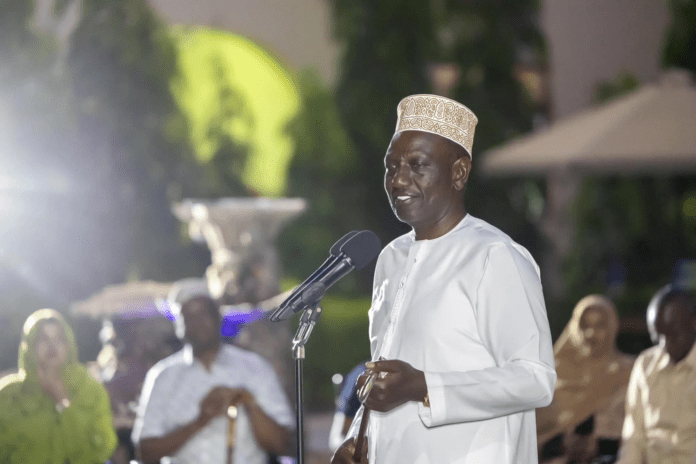
For years, Kenyan Somalis have faced an additional hurdle when applying for national identification documents—a vetting process that has been widely criticized as discriminatory. However, President William Ruto has now scrapped this requirement, marking a significant policy shift aimed at promoting inclusivity and equal citizenship rights.
Signing the Presidential Proclamation on Registration and Issuance of IDs to Border Counties, President Ruto termed the practice unjust and disenfranchising.
“If it’s about vetting, let all children of Kenya be vetted equally without any discrimination,” he said.
He made the remarks after publicly signing and reading out the decree at Orahey Grounds in Wajir Town.
For years, residents of North Eastern have endured extra-vetting and ethnic profiling by the State before they acquire birth certificates and national identity cards.
“We want the people of Northern Kenya to feel equal to the rest of the country,” the President said.
The process of obtaining national identification documents in Kenya is guided by the Registration of Persons Act. Under Section 6, individuals applying for an ID must provide proof of birth in Kenya—such as a birth certificate, birth notification, or baptismal card—along with evidence of citizenship, typically a parent’s Kenyan ID or passport.
Despite this legal framework, Kenyan Somalis, particularly those from counties near the Somalia border, were subjected to an extra layer of scrutiny.
Authorities justified the vetting process on national security grounds, citing concerns over possible infiltration by non-citizens due to the region’s proximity to Somalia.
The procedure was overseen by a security committee comprising officials from the National Intelligence Service (NIS), National Police Service, local chiefs, and community elders. Applicants were required to produce additional documentation beyond the standard requirements, including their grandparents’ identification documents and witnesses to verify their Kenyan birth.
While security concerns are valid, critics argued that the vetting process lacked a legal basis and was unfairly applied to a specific ethnic group.
Kenya’s Constitution, under Article 14(1), affirms that anyone born in the country is entitled to citizenship. By demanding extra proof from Kenyan Somalis, the vetting process effectively contradicted this constitutional provision.
Additionally, the system allowed room for discrimination, delays, and corruption, with some applicants reportedly denied identification documents due to bias or exploitation. This practice not only created unnecessary obstacles but also reinforced ethnic profiling, alienating Kenyan Somalis from full participation in national affairs.
In February 2025, President William Ruto officially abolished the vetting process, ending a practice that had been in place for decades. He emphasized that national security should not be used as an excuse to discriminate against any group of Kenyans.
Signing the Presidential Proclamation on Registration and Issuance of IDs to Border Counties, President Ruto termed the practice unjust and disenfranchising.
“If it’s about vetting, let all children of Kenya be vetted equally without any discrimination,” he said.
He made the remarks after publicly signing and reading out the decree at Orahey Grounds in Wajir Town.
For years, residents of North Eastern have endured extra-vetting and ethnic profiling by the State before they acquire birth certificates and national identity cards.
“We want the people of Northern Kenya to feel equal to the rest of the country,” the President said.
Government officials clarified that eliminating the vetting process would not compromise security but rather ensure a fairer, more transparent system that upholds constitutional rights while addressing legitimate security concerns through other means.
This landmark decision is expected to ease the process of acquiring identification documents for Kenyan Somalis, reaffirming their rightful status as equal citizens of Kenya.






